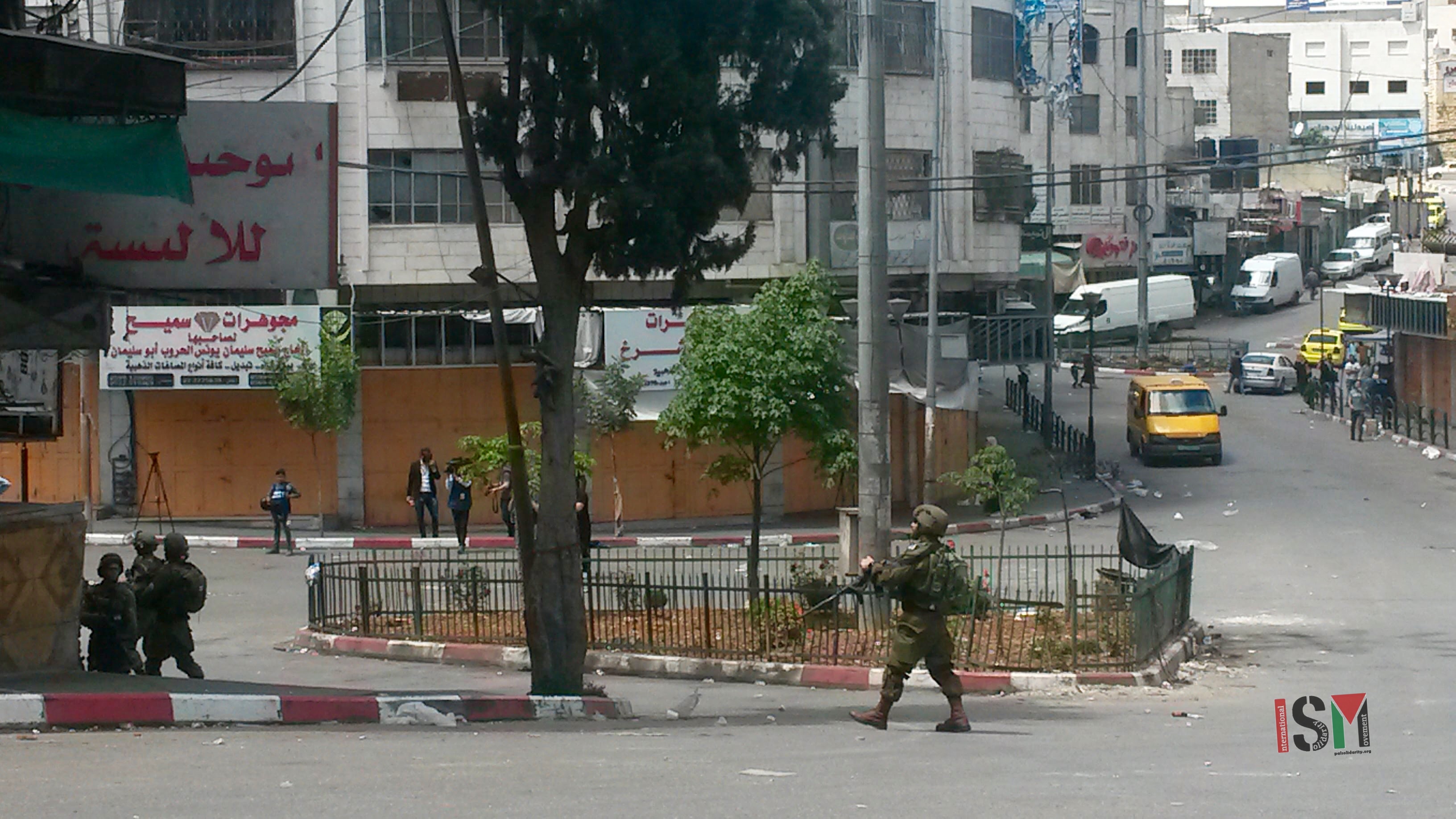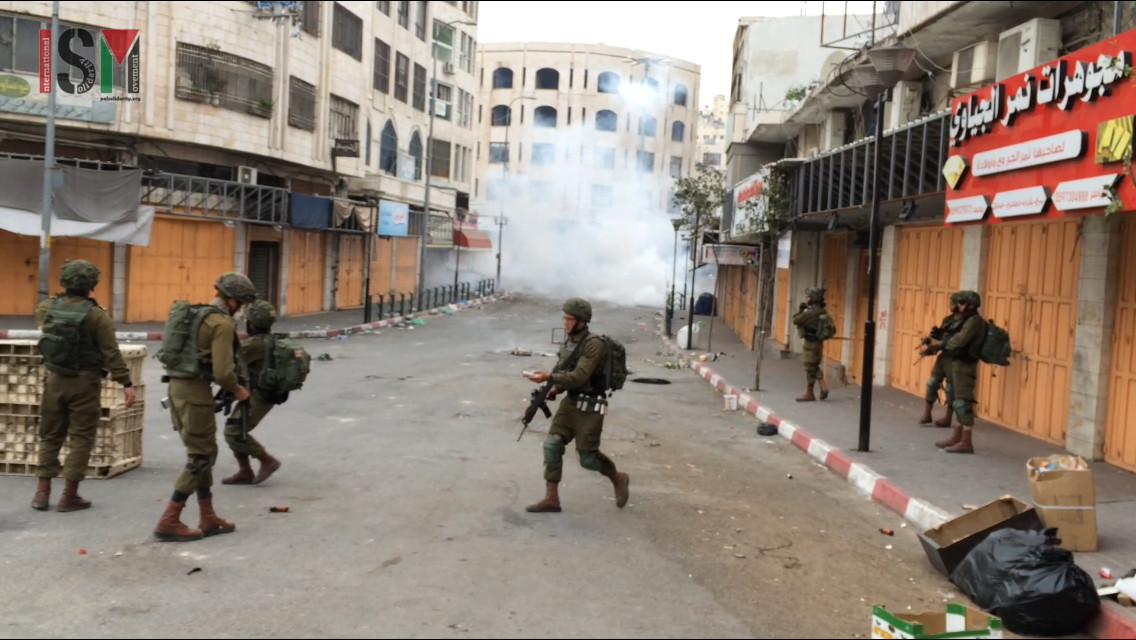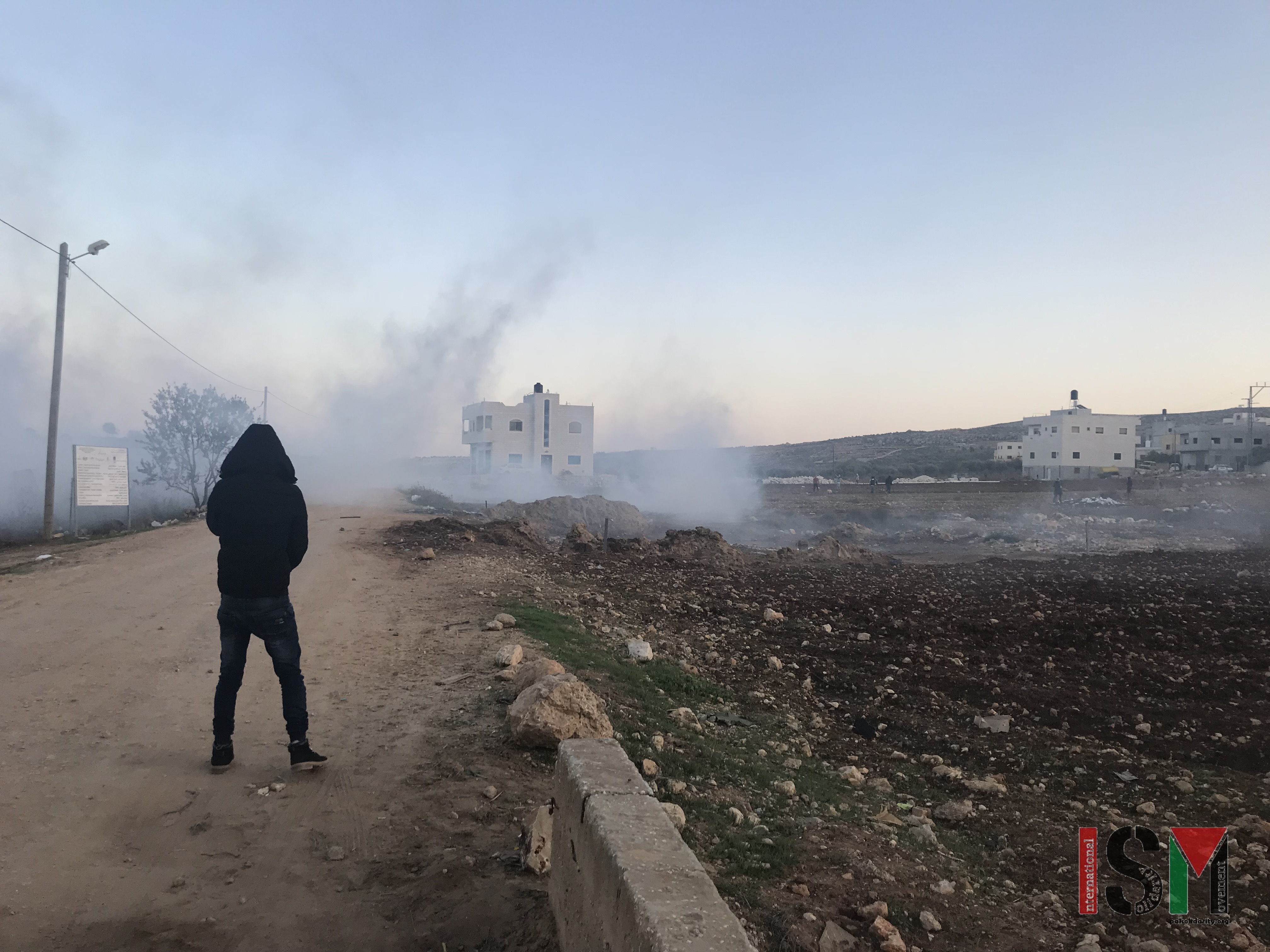Tag: Israeli forces
-
Israeli soldiers injure 4 unarmed Palestinians in Al-Khalil protest Monday 14th May
On Monday 14th May at 11am, protesters in occupied Al-Khalil gathered at the Hussein Mosque stadium with placards, and marched down to the city centre, gathering there and taking pictures at around 11.30. Around 80 protesters were present, including children and observers. Some protesters continued on towards Checkpoint 56, which prevents Palestinians from entering Shuhada…
-
Second day of clashes Palestinian youth protest Gaza killings in Al Khalil
Saturday 31 March 2018, International Solidarity Movement al-Khalil/Hebron, Occupied West Bank, Palestine. Palestinian youth protested the killings in Gaza at Checkpoint 56. The Israeli soldiers fired teargas, stun grenades and live ammunition. Beginning at 8AM Palestinian youth took to the streets of al-Khalil/Hebron to protest the killings and injuries inflicted by the Israeli military on…



